Marriott’s acquisition of Starwood is great news for investors, but unfortunately not for Starwood hotel guests and employees. The quote that sums up the reasoning behind this deal came from Starwood Chairman Bruce Duncan.
“We are committed to what is best for shareholders.”
Notice that employees and guests are not mentioned. This is because they are not the focus of the consolidation. Industry consolidation is aimed at increasing investors’ profits or killing a competitor in the industry. With this deal, Marriott is hitting both those key points. When a deal like this is made, the numbers have been run and re-run hundreds of times. Everything must look good on paper, first and foremost. Banks and investors are going to be the clear winners in this deal.
However, I’d like to talk about the important players in this deal that are not likely to fare too well: the guests and the employees.
Guests (The Case of the Diminishing Rewards)
The massive march toward total devaluation of loyalty points continues onward. Every major hotel chain has devalued its rewards program in the past five years. Hilton, Marriott, Starwood and Carlson issued major devaluations in their loyalty points in 2013 and again in 2015. Historically, mergers have almost always resulted in devaluation of loyalty programs and inferior service. Anyone who thinks bigger is better when it comes to personal attention has obviously never called his cable company.
In 2013, Marriott created a new (read higher) category of hotels: the super “category 9” hotels, where it takes 45,000 points to stay for one night! They also raised the points requirement per night on 40% of their portfolio, which in their case was an increase of around 5000+ points to book a room. In March 2015, Marriott moved approximately 25% of their hotels into a higher bracket; that means you now need more points per night to get a room in the same hotel.
Starwood has been known to have the best elite program in the game. Even so, earlier this year 20% of their hotels did the category shuffle. The difference is that, in their case, half of the hotels in this 20% segment moved up a category and the other half moved down. Much less drastic than Marriott.
With Marriott taking over and a loyalty program merger inevitable in the near future, the overall value proposition is going to go down. It might be good for low- to mid-level SPG status holders, but the super elites will take a hit. Even the credit card offers from Starwood have always been out of Marriott’s league. There is no other way this is going to play out: the existing Starwood elite SPG program will take a hit.
I was disturbed by the whiny and entitled responses to the merger by the “elites” in this NY Times article. But the fact is thing are going to get worse for them and they know it.
Employees
History and common sense both tell us that consolidation is hardly ever good news for employees. This merger is no different than most in that respect.
Starwood made some mistakes over the years by spreading itself too thin specially that their gable in Asia, Europe and the Middle East didn’t really pan out. If you remember, they took a lot of pride in “moving” their corporate offices to international hubs for 30 days (China, Dubai and India for 30 days). Because, what motivates a team more than jet lag…right? This was nothing more than a gimmick, like that time in 2006 when Starwood Hotels opened in Second Life, which was supposed to be the next big thing. You really cannot be going international when all your core marketing and strategy is centralized in Stamford, Connecticut.
Anyway, with this expansion came international teams. So guess what is going to happen in Singapore and Hong Kong and New Delhi, where both hotel chains have regional presence? Will they need two Sales Directors, Revenue Managers, or Operations Directors sitting in two offices in the same city? What about in the US where Marriott already has a massive corporate team? Short answer: No.
Marriott has made a name for itself with its efficiency. Kudos for that. But this also means that they are not going to be supporting multiple teams of people to do the same job. This is particularly relevant to employees in senior and cluster management and operations positions.
The market right now is flooded with Starwood resumes. This is especially true in international markets. Since I am very fortunate to have friends working globally for large hotel chains, I know for a fact that there is some panic in the job market.
Most guests will be fine and will deal with the changes in the loyalty program and dwindling levels of personal service over time. But the human cost in terms of disrupted careers and lost opportunities is harder to absorb.
Conclusion
It’s not all doom and gloom. This merger presents a huge opportunity for independent and ultra-luxury hotels. It’s the perfect time to outshine the rapidly diminishing hotel loyalty programs that the behemoth hotel brands are trimming and slashing, by offering a unique experience that includes highly personalized service. Another group that should be celebrating this consolidation, aside from the bankers, is Airbnb and the other apartment/home rental players. This is just what they wanted for Christmas, even if they didn’t know it. More business travelers will be looking to go rogue when faced with diminishing loyalty points, and therefore diminishing loyalty.

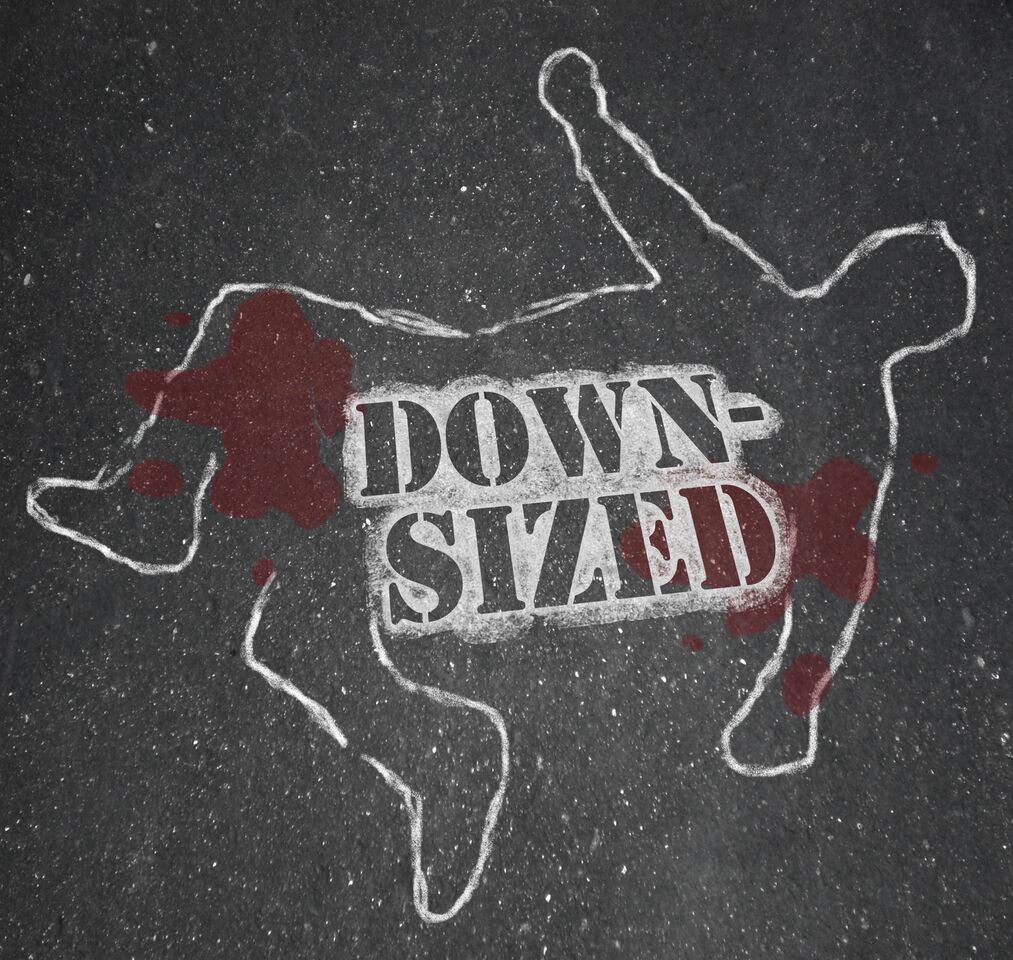
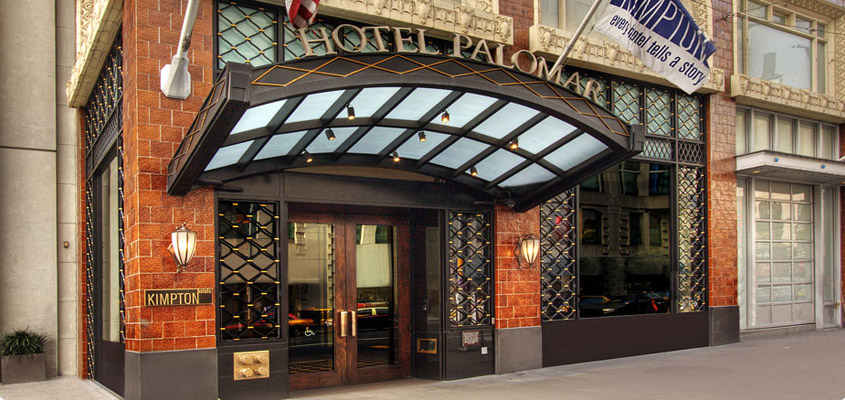
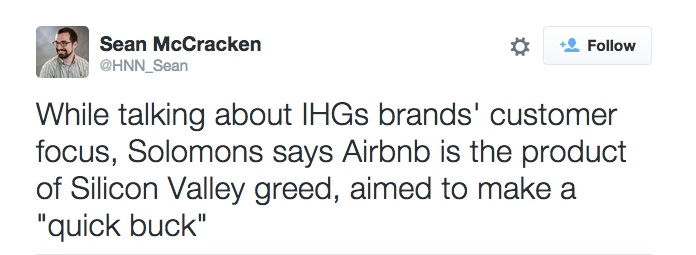
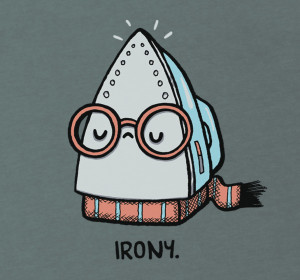 Interestingly, IHG is one of the brands I often refer to when speaking about
Interestingly, IHG is one of the brands I often refer to when speaking about 

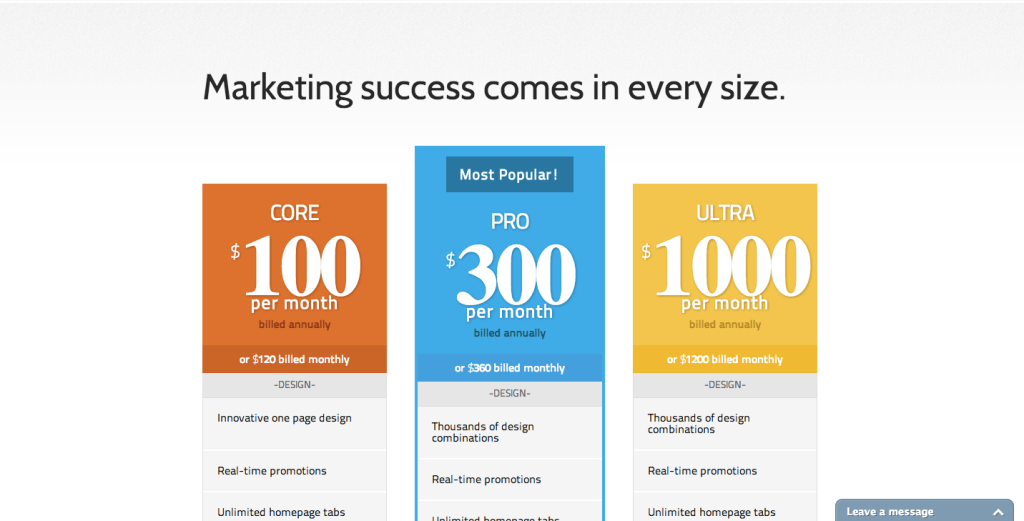

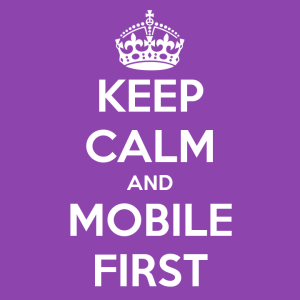


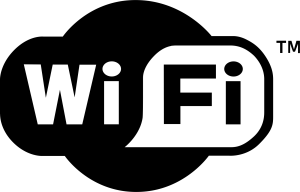

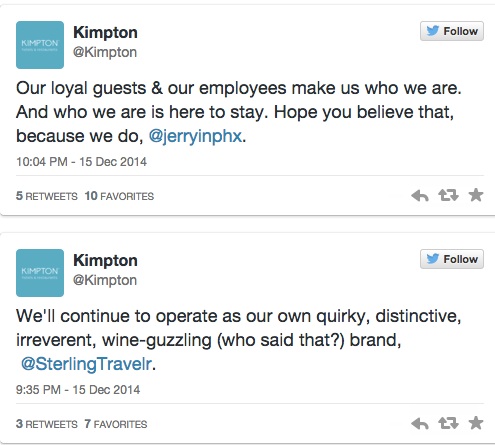 How quickly things change! Check out the two standard tweet replies now going out from the @kimpton hotels Twitter account. These are used to reply to all tweets, no matter how positive or negative.
How quickly things change! Check out the two standard tweet replies now going out from the @kimpton hotels Twitter account. These are used to reply to all tweets, no matter how positive or negative.
